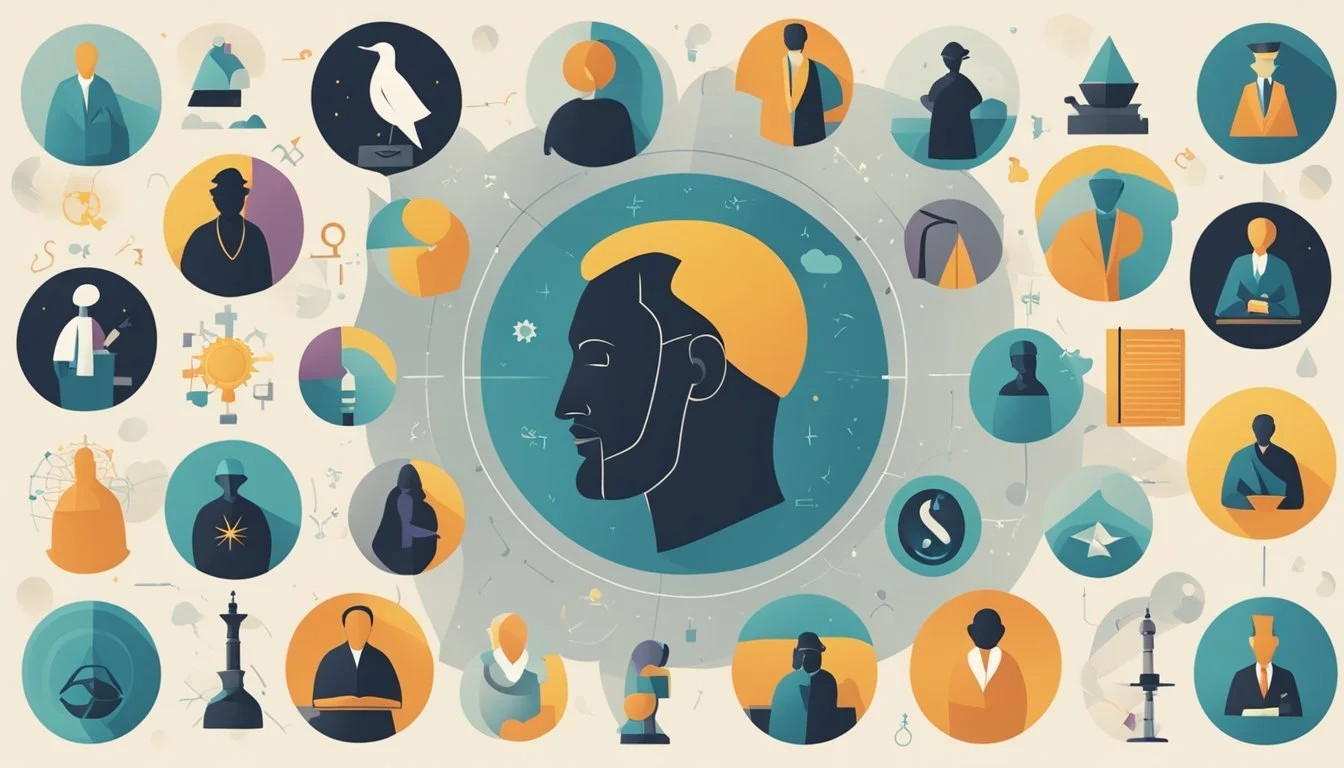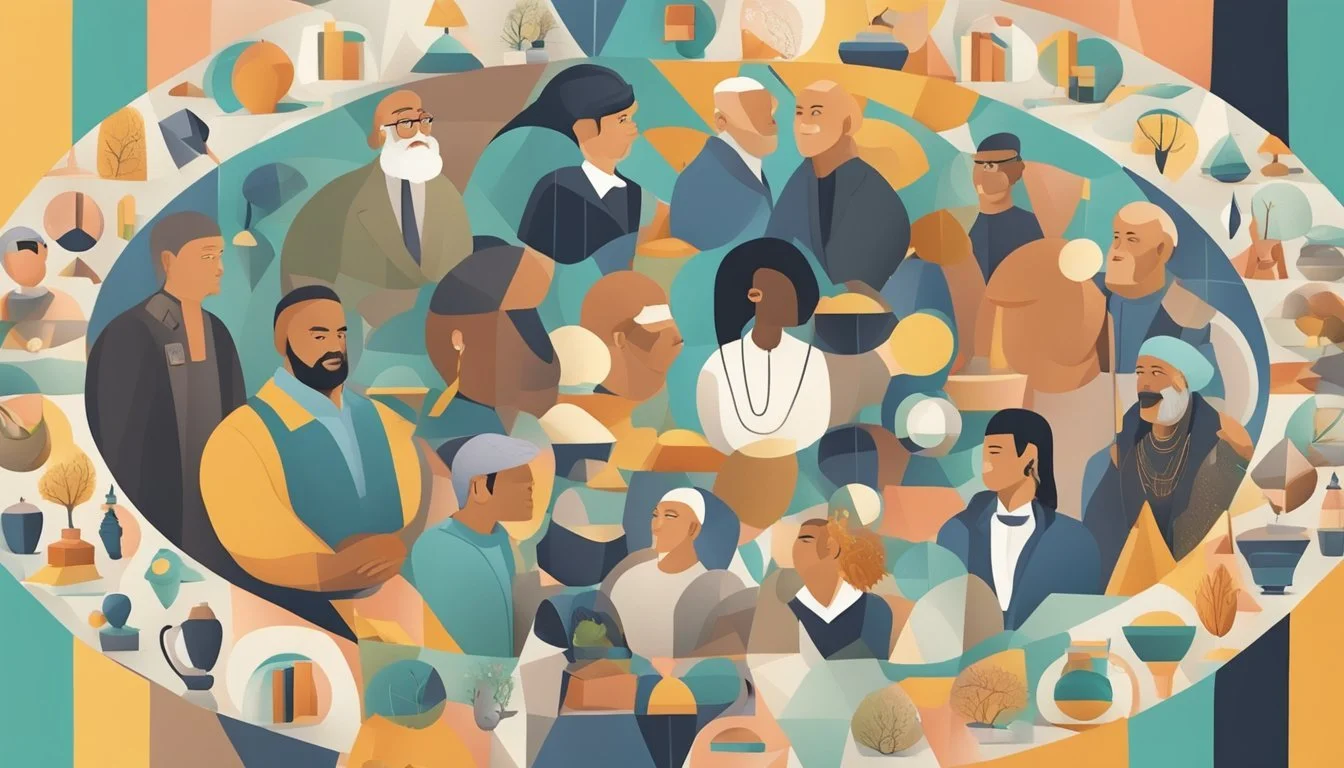Meet the Philosopher: The Visionary Culture Index Personality Type You Need!
Culture Index personality types offer valuable insights into workplace dynamics and individual strengths. Among these types, the Philosopher stands out as a unique and intriguing category. Philosophers are characterized by high autonomy, low pace, and low conformity, making them visionary thinkers who approach problems from unconventional angles.
Philosophers typically excel in roles that require strategic planning, conceptual thinking, and innovation. They tend to be introspective, analytical, and driven by ideas rather than practical implementation. While they may not always be the most socially outgoing team members, their ability to see the big picture and challenge existing paradigms can be invaluable to organizations seeking breakthrough solutions.
Understanding the Philosopher type within the Culture Index framework can help businesses better leverage the strengths of these individuals. By recognizing their need for intellectual stimulation and independence, companies can create environments where Philosophers thrive and contribute their unique perspectives to drive innovation and growth.
Understanding the Culture Index
The Culture Index is a powerful tool for assessing workplace dynamics and personality types. It provides valuable insights into employee behaviors, communication styles, and organizational culture.
The Concept of Culture Index
The Culture Index utilizes a survey-based approach to evaluate individual traits and team dynamics. It measures key attributes like logic, autonomy, and conformity. This assessment helps organizations identify strengths and potential areas for improvement among their workforce.
The Culture Index focuses on understanding how employees think, communicate, and interact. It examines factors such as pace, energy levels, and decision-making processes. By analyzing these elements, companies can optimize team compositions and enhance overall productivity.
Components and Metrics of the Culture Index
Culture Index surveys typically assess several core components:
Communication styles
Problem-solving approaches
Work pace preferences
Collaboration tendencies
Energy levels
These metrics are evaluated through carefully designed questions that probe various aspects of an individual's personality and work habits. The results provide a comprehensive profile of each employee's strengths and tendencies.
Culture Index assessments also examine how well individuals align with company values and goals. This alignment is crucial for maintaining a cohesive workplace culture and driving employee engagement.
Interpreting Culture Index Results
Interpreting Culture Index results requires careful analysis and context. The assessment provides insights into individual personality types and how they may interact within a team environment.
Results often highlight:
Dominant traits
Preferred communication methods
Potential areas of conflict
Synergies between team members
Organizations can use these findings to:
Improve team dynamics
Enhance leadership effectiveness
Optimize job assignments
Tailor training programs
By understanding each employee's unique profile, managers can make informed decisions about task allocation, conflict resolution, and performance improvement strategies. This targeted approach leads to increased job satisfaction and productivity across the organization.
The Philosophy Behind Personality Typing
Personality typing systems aim to categorize individuals based on core traits and behaviors. These frameworks draw upon philosophical concepts of human nature and identity to create structured models for understanding individual differences.
Historical Evolution of Personality Typing
Ancient Greek philosophers like Hippocrates proposed early personality categorizations based on bodily "humors." In the early 20th century, Carl Jung developed psychological types that influenced modern systems.
Jung's work inspired the creation of the Myers-Briggs Type Indicator (MBTI) in the 1940s. This tool assesses preferences across four dichotomies to identify 16 personality types.
The DISC model emerged in the 1920s, focusing on four behavioral styles: Dominance, Influence, Steadiness, and Compliance. It gained popularity in workplace settings.
Core Philosophical Theories
Personality typing draws on several key philosophical ideas:
Essentialism: The belief that individuals have innate, stable traits
Determinism: The notion that personality significantly shapes behavior
Categorization: Grouping people based on shared characteristics
These concepts intersect with debates on free will, nature vs. nurture, and personal identity. Critics argue typing oversimplifies human complexity.
Proponents view personality frameworks as tools for self-awareness and improved interpersonal understanding. They see value in recognizing patterns while acknowledging individual uniqueness.
Comparing Various Personality Assessment Tools
Popular personality assessments include:
MBTI: 16 types based on cognitive functions
DISC: 4 main behavioral styles
Big Five: Measures 5 broad personality dimensions
Culture Index: Assesses 6 traits including Type-A and extroversion
Each tool has strengths and limitations. MBTI offers detailed type descriptions but faces criticism for lacking scientific validity. DISC provides a simpler model applicable to workplace dynamics.
The Big Five is widely used in academic research due to its empirical support. Culture Index aims to inform hiring and management decisions in business settings.
Culture Index and the Workplace
Culture Index plays a crucial role in shaping workplace dynamics, influencing employee behavior, and driving organizational success. It provides valuable insights for leaders to optimize team performance and create a positive work environment.
Influence on Organizational Culture
Culture Index helps organizations understand their employees' natural tendencies and preferences. This knowledge allows companies to align their corporate culture with their workforce's inherent traits. By identifying dominant personality types, businesses can tailor their policies and practices to suit their team's needs.
Companies can use Culture Index data to:
Design office layouts that cater to different work styles
Create communication protocols that resonate with various personality types
Implement reward systems that motivate diverse team members
These targeted approaches lead to increased employee satisfaction and engagement. As a result, organizations often see improvements in productivity and overall performance.
Improving Team Dynamics and Leadership
Culture Index insights enable leaders to build more effective teams and refine their management styles. By understanding team members' strengths and weaknesses, managers can:
Assign tasks that align with individual capabilities
Foster collaboration between complementary personality types
Resolve conflicts by addressing underlying personality differences
Leaders can also adapt their communication and decision-making processes to suit their team's composition. This flexibility enhances trust and rapport within the organization.
Culture Index data helps identify potential leadership candidates who possess traits conducive to the company's goals and values. This approach ensures a more strategic succession planning process.
Strategies for Employee and Client Retention
Culture Index assists in developing targeted retention strategies for both employees and clients. For employee retention, companies can:
Create personalized career development plans
Offer tailored benefits packages
Implement mentorship programs matched to personality types
These initiatives demonstrate a commitment to employee growth and well-being, fostering loyalty and reducing turnover.
For client retention, businesses can use Culture Index to:
Match client personalities with compatible account managers
Customize communication styles for different client types
Develop products and services that appeal to specific personality profiles
By aligning offerings with client preferences, companies can strengthen relationships and improve customer satisfaction. This personalized approach often leads to increased client retention and business growth.
Practical Application of the Culture Index
The Culture Index provides valuable insights for organizations to optimize their workforce. It offers practical tools for enhancing hiring processes, refining management approaches, and fostering team synergy.
Using the Culture Index for Hiring
The Culture Index survey helps companies make informed hiring decisions. By assessing candidates' personality traits and work preferences, organizations can match potential employees to suitable roles. This approach increases the likelihood of job satisfaction and long-term retention.
HR teams can use Culture Index results to create targeted interview questions. These questions delve into specific behavioral traits relevant to the position. For example, a high-pressure sales role may require candidates with strong Type-A characteristics and extroversion.
The Culture Index also aids in predicting job performance. By comparing a candidate's profile to successful employees in similar roles, employers can gauge potential fit and success.
Tailoring Management and HR Processes
Culture Index insights allow managers to adapt their leadership styles to individual team members. This personalized approach can boost employee morale and productivity.
HR departments can use Culture Index data to design tailored training programs. These programs address specific developmental needs based on employees' personality profiles.
Performance evaluations can be refined using Culture Index information. Managers can set realistic goals and provide feedback that resonates with each employee's communication style.
Culture Index results also inform conflict resolution strategies. Understanding different personality types helps mediate disagreements and foster better workplace relationships.
Creating Synergy in Diverse Teams
The Culture Index helps organizations build balanced and effective teams. By assembling groups with complementary traits, companies can enhance creativity and problem-solving capabilities.
Team leaders can use Culture Index data to assign tasks based on individual strengths. This approach maximizes efficiency and job satisfaction among team members.
The Culture Index provides a common language for discussing work styles and preferences. This shared understanding promotes better communication and collaboration within diverse teams.
By recognizing and valuing different personality types, organizations can create an inclusive work culture. This environment encourages employees to bring their authentic selves to work, fostering innovation and engagement.
Types of Personalities in the Culture Index
The Culture Index identifies distinct personality types based on key traits and behaviors. These profiles help organizations understand and leverage individual strengths.
Identifying the Visionary
Visionaries exhibit high energy and creativity. They excel at developing innovative ideas and seeing the big picture. These individuals often take initiative and inspire others with their forward-thinking approach.
Visionaries tend to be: • Imaginative • Strategic thinkers • Risk-takers • Confident
Their strengths lie in conceptualizing new possibilities and driving change. However, they may struggle with details or following through on ideas.
Understanding the Researcher
Researchers are analytical and detail-oriented. They have a strong drive for accuracy and enjoy diving deep into complex problems.
Key traits include: • Logical thinking • Methodical approach • Focus on facts and data • Preference for structure
Researchers excel at gathering information, analyzing trends, and uncovering insights. They may need support transitioning from analysis to action.
Traits of an Enterpriser
Enterprisers combine leadership skills with a results-oriented mindset. They have high energy and influence others through their charisma and drive.
Common characteristics: • Goal-focused • Competitive • Persuasive • Quick decision-makers
These individuals thrive when leading teams and driving projects forward. They may need to balance their ambition with empathy for others.
Characteristics of Socials
Socials possess strong interpersonal skills and emotional intelligence. They excel at building relationships and creating harmonious work environments.
Typical traits include: • Empathy • Active listening • Conflict resolution abilities • Adaptability
Socials shine in roles requiring collaboration and communication. They may need to develop assertiveness in challenging situations.
The Organizer Profile
Organizers bring structure and efficiency to their work. They have a keen eye for processes and excel at creating systems.
Key attributes: • Detail-oriented • Methodical • Reliable • Rule-following
These individuals thrive when implementing plans and managing logistics. They may need encouragement to embrace change or take risks.
Facilitator: The Team Player
Facilitators excel at promoting teamwork and resolving conflicts. They have a collaborative approach and focus on group dynamics.
Typical characteristics: • Diplomatic • Supportive • Patient • Inclusive
Facilitators shine in roles requiring consensus-building and team coordination. They may need to develop decisiveness when quick action is required.
Maximizing Potential with the Culture Index
The Culture Index offers valuable insights for optimizing individual and team performance. By leveraging personality data, organizations can create environments that foster growth, innovation, and effective communication.
Enhancing Work-Life Balance
Culture Index results can guide the creation of tailored work arrangements. Employees with high patience scores may thrive in roles requiring sustained focus, while those with lower scores may benefit from varied tasks.
Flexible schedules can be implemented based on individual traits. Early risers with high Type-A scores might prefer morning shifts, while night owls may be more productive later in the day.
Managers can use personality insights to assign projects that align with employees' natural strengths. This approach reduces stress and increases job satisfaction.
Fostering Innovation and Creativity
Understanding team members' intuition and logic scores helps create diverse problem-solving groups. Pairing analytical thinkers with creative minds can lead to breakthrough solutions.
Brainstorming sessions can be structured to accommodate different personality types. Extroverts may excel in group discussions, while introverts might prefer submitting ideas in writing.
Managers can use Culture Index data to identify potential innovators within the team. Those with high intuition scores may be well-suited for roles that require thinking outside the box.
Building Effective Communication and Feedback Loops
Culture Index insights can improve team interactions by highlighting individual communication preferences. Direct communicators may appreciate straightforward feedback, while others may prefer a more nuanced approach.
Managers can tailor their leadership style based on team members' personality traits. Employees with high conscientiousness scores may respond well to detailed instructions, while others may prefer more autonomy.
Regular check-ins can be customized to each employee's needs. Some may thrive on frequent feedback, while others may prefer less frequent, more in-depth discussions.
Case Studies and Success Stories
A technology startup used Culture Index to build high-performing teams. By aligning personality types with job roles, they saw a 30% increase in productivity within 6 months.
A retail chain implemented Culture Index for hiring and team composition. This led to a 25% boost in customer satisfaction scores and a 15% improvement in employee retention rates.
A consulting firm utilized Culture Index to enhance client relationships. By matching consultants' personalities with client needs, they achieved a 40% increase in client retention over two years.
A manufacturing company applied Culture Index to improve communication between departments. This resulted in a 20% reduction in production delays and a 10% increase in overall efficiency.
A financial services firm leveraged Culture Index to optimize their sales team structure. They experienced a 35% growth in sales revenue and a 28% improvement in employee morale within one year.
These case studies demonstrate the practical benefits of implementing Culture Index across various industries. The tool's ability to align personality types with organizational needs consistently leads to improvements in team performance, customer relations, and overall business outcomes.







